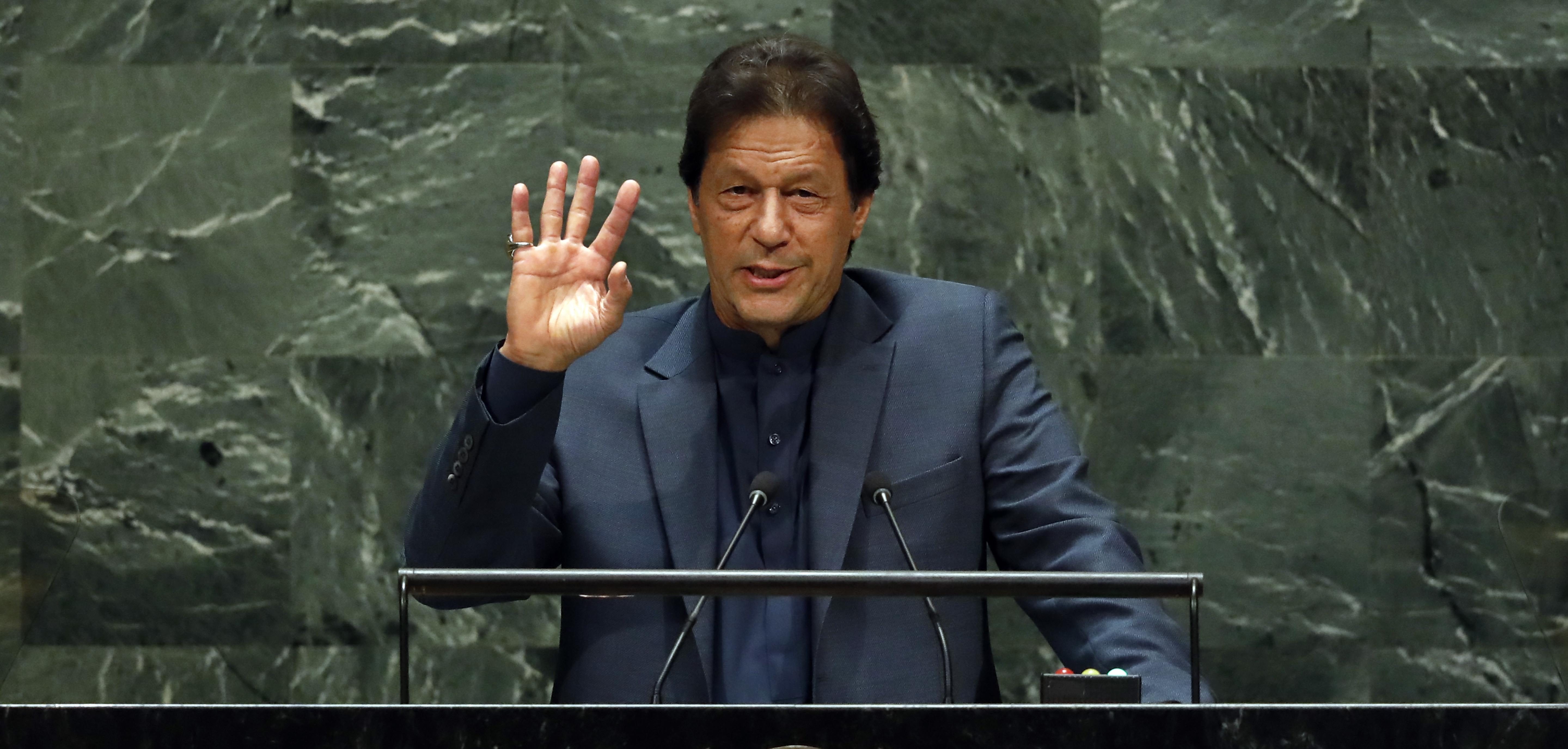
Pak delegation in Paris to present compliance report before FATF

Facing the risk of being placed on the FATF blacklist with Iran and North Korea, a delegation led by Pakistan’s economic affairs minister will present its case before the financial watchdog on the measures taken by Islamabad to curb terror financing and money laundering.
Pakistan was placed on the grey list by the Paris-based Financial Action Task Force in June last year and was given a plan of action to complete it by October 2019, or face the risk of being placed on the black list.
The Paris-based body is reviewing the progress made by Pakistan until April this year, during the FATF Week, which began on October 13 and will conclude on October 16. The review will determine if Pakistan stays on the grey list or moved on the black list or given a clean chit.
Minister for Economic Affairs Division Hammad Azhar, who is heading the Pakistani delegation to present the compliance report before the FATF, arrived in Paris on Sunday to attend a round of meetings, the Dawn News reported on Monday.
ALSO READ: Pakistan under biggest pressure from FATF: Ajit Doval
The FATF Week will focus on “disrupting financial flows linked to crime and terrorism and discuss ways to contribute to global safety and security”. The round of meetings will be attended by representatives from 205 countries as well as jurisdictions around the world, including the International Monetary Fund, United Nations, World Bank and other organisations, the report said.
Earlier this month, the Asia Pacific Group (APG) has said that Pakistan faces high risks of money laundering and terror financing and has complied with just one the 40 recommendations set by the Financial Action Task Force at the time of the country’s inclusion in its grey list.
The APG is a regional body of the FATF, which requires its members to undergo mutual evaluation of the anti-money laundering and combating the financing of terrorism frameworks.
In its 228-page Mutual Evaluation Report released on October 2, the APG said out of the FATFs 40 recommendations on curbing money laundering and combating the financing of terrorism, Pakistan was fully compliant only on one.
It was largely compliant on nine, partially compliant on 26 and non-compliant on four recommendations.
Pakistan faces high risks of money laundering and terror financing and it needs to improve the understanding of these risks that are also animating from various terrorist groups operating in the country, the report said.
ALSO READ: India calls for cooperation between FATF, UN to combat terror financing
Meanwhile, ahead of the FATFs crucial decision on Pakistan, the US on Saturday said Islamabad must prevent militant groups from operating on its soil and prosecute top Lashkar-e-Taiba operatives along with its leader Hafiz Saeed.
Alice Wells, head of the US state departments South and Central Asian bureau, also welcomed the arrest of the top four leaders of Lashkar-e-Taiba /Jamaat-ud-Dawah in Pakistan.
Pakistans law enforcement agencies on Thursday arrested the “top four leaders” of the banned LeT/JuD on charges of terrorism financing.
The top four arrested terrorists have been identified as Professor Zafar Iqbal, Yahya Aziz, Muhammad Ashraf and Abdul Salam.
“As Prime Minister Imran Khan has said, Pakistan, for its own future, must prevent militant groups from operating on its soil,” Wells tweeted.
“We welcome news that Pakistan arrested 4 #LeT leaders. The victims of LeTs vicious attacks deserve to see these individuals prosecuted now, along with LeT leader Hafiz Saeed,” she said.
Pakistan has a long history of catching and releasing terrorists operating from its soil ahead of major meetings of international organisations involved in combating terror financing and money laundering.


